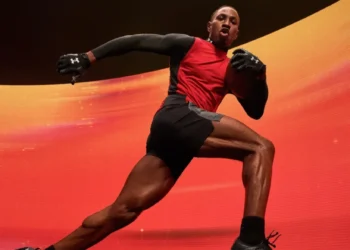In India, where betting is illegal under the Public Gambling Act of 1867, this attachment could catalyze reforms, including mandatory disclosures for ex-players’ commercial deals.
NEW DELHI (India CSR): In a development that has sent shockwaves through the world of international cricket, India’s Enforcement Directorate (ED) has provisionally attached assets totaling Rs 11.14 crore (approximately $1.32 million USD) belonging to former national team stalwarts Suresh Raina and Shikhar Dhawan. The action, announced on Thursday, stems from an ongoing money laundering investigation tied to the notorious online betting platform 1xBet, which has been accused of operating illegally in India and defrauding users worldwide. This case not only highlights the shadowy underbelly of sports endorsements but also raises profound ethical questions about the responsibilities of cricketers as global ambassadors and the tarnishing of their personal brands.
The ED’s probe, initiated under the Prevention of Money Laundering Act (PMLA), alleges that Raina and Dhawan “knowingly” entered into lucrative endorsement deals with foreign entities linked to 1xBet, a Cyprus-based gambling operator banned in multiple countries including India. According to agency sources, these agreements promoted the app and its surrogate platforms, funneling illicit proceeds back to the endorsers. The attached assets include immovable properties valued at Rs 9.43 crore in Raina’s name and Rs 1.71 crore in Dhawan’s, which the ED has classified as “proceeds of crime” derived from the illegal betting syndicate. This seizure marks a significant escalation in India’s crackdown on offshore betting rackets, which have proliferated amid the digital boom in sports wagering.
1xBet – controversial player
For the uninitiated, 1xBet has long been a controversial player in the global gambling landscape. Operating from tax havens like Curaçao, the platform has faced bans and fines across Europe and Asia for money laundering, match-fixing facilitation, and predatory advertising tactics targeting vulnerable users. In India, where cricket is more than a sport—it’s a cultural phenomenon—the app’s infiltration into endorsements has been particularly insidious. Investigations reveal that 1xBet exploited the star power of retired athletes to lure fans into high-stakes betting on IPL matches and international tours, often under the guise of “fantasy gaming.” The ED’s findings suggest that such promotions generated millions in unreported revenue, with a portion allegedly laundered through hawala networks and cryptocurrency channels.
Suresh Raina, 42, a key figure in India’s 2011 World Cup-winning squad, and Shikhar Dhawan, 40, the flamboyant opener who dazzled in three ODI World Cups, have both denied any wrongdoing. Raina, known for his aggressive middle-order batting and fielding prowess, transitioned seamlessly into a post-retirement career as a commentator and brand ambassador, amassing a net worth estimated at over Rs 100 crore through endorsements with brands like Pepsi and Dream11. Dhawan, affectionately called “Gabbar,” has similarly leveraged his affable image for deals with Paytm and MRF tires, embodying the modern cricketer’s evolution into a marketable icon. Neither has issued a formal statement yet, but sources close to their legal teams indicate they plan to challenge the attachment in appellate tribunals, arguing the endorsements were legitimate promotional contracts vetted by their management.
Integrity in sport
This scandal unfolds against a backdrop of heightened scrutiny on cricket’s ethical landscape. The International Cricket Council (ICC) and national boards like the Board of Control for Cricket in India (BCCI) have long championed “integrity in sport,” with strict anti-corruption codes prohibiting players from associating with betting entities. Yet, the blurred lines between legal fantasy sports and outright gambling have created gray areas, especially for retired stars no longer under active BCCI oversight. Experts argue that Raina and Dhawan’s involvement—however peripheral—undermines the moral authority cricketers hold as role models for millions, particularly in a country where youth idolize them as symbols of discipline and fair play.
Ethics and influencer marketing
From an ethical standpoint, this case exemplifies the commodification of athletes’ brands in an era of influencer marketing. Cricketers like Raina and Dhawan, whose endorsements can sway consumer behavior and generate crores in revenue, bear a heightened duty to vet partners. The 1xBet controversy exposes how financial incentives can eclipse due diligence, potentially eroding public trust in the sport. “When icons of integrity lend their faces to dubious platforms, it normalizes gambling addiction and match-fixing risks, disproportionately affecting low-income fans who bet beyond their means,” said Dr. Priya Sharma, a sports ethicist at the University of Delhi, in a recent commentary. Globally, similar scandals—such as the 2018 Australian ball-tampering saga or FIFA’s corruption probes—have prompted calls for stricter third-party audits on endorsements. In India, where betting is illegal under the Public Gambling Act of 1867, this attachment could catalyze reforms, including mandatory disclosures for ex-players’ commercial deals.
The fallout for Raina and Dhawan’s brands is already evident. Shares of companies associated with their endorsements dipped marginally on Thursday, and social media buzz has amplified calls for boycotts. IPL franchises like Chennai Super Kings (Raina’s former team) and Delhi Capitals (Dhawan’s) have distanced themselves, issuing statements reaffirming their commitment to clean sports. Internationally, the story has trended on platforms like Twitter (now X) and Reddit, drawing parallels to scandals involving NBA stars and crypto schemes or Premier League footballers in sponsorship pitfalls. For a sport that generates $2.5 billion annually for India alone, this serves as a stark reminder: the glamour of cricket’s brand must not come at the expense of its soul.
As the ED’s investigation deepens, with potential raids on promotional agencies on the horizon, the world watches. Will this be a turning point for ethical endorsements in cricket, or another chapter in sport’s endless tug-of-war between profit and principle? Only time—and perhaps a courtroom—will tell.
(India CSR)






















